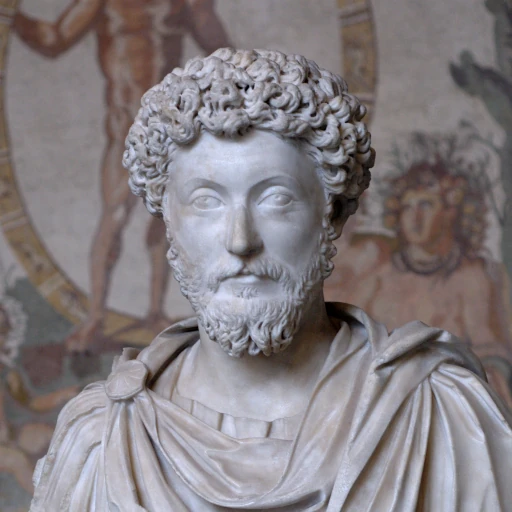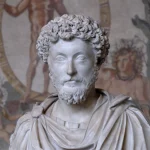“The universal order and the personal order are nothing but different expressions and manifestations of a common underlying principle.”

- April 26, 121 – March 17, 180
- Roman Empire
- Roman Emperor
- Influenced by Stoic philosophy, he wrote “Meditations” and practiced ideal governance as a philosophical leader, and was later praised as one of the Five Good Emperors.
Quote
“The universal order and the personal order are nothing but different expressions and manifestations of a common underlying principle.”
Explanation
In this quote, Marcus Aurelius suggests that both the cosmic order of the universe and the individual order of our personal lives are not separate or disconnected, but are instead expressions of a single, underlying principle. This principle, which aligns with Stoic philosophy, refers to the rationality and cosmic law that govern all things. Just as the universe operates in a structured and harmonious way, so too does the individual, when they live in accordance with virtue and reason. The Stoic belief here is that the same natural laws that guide the universe also guide our lives, and that by understanding and aligning ourselves with these principles, we find peace and purpose.
Aurelius, a Stoic philosopher and Roman emperor, recognized that the challenges and chaos of ruling an empire could often feel disconnected from the larger, rational order of the cosmos. Yet, he also understood that personal and universal order are interconnected, and that by cultivating rational thought and virtue within ourselves, we contribute to the greater harmony of the universe. This idea is profoundly relevant today, reminding us that our individual choices, actions, and moral development are part of a larger, interconnected whole.
In practical terms, this quote encourages us to align our personal actions with the universal principles of reason, virtue, and justice. By reflecting on how our choices impact not only our lives but also the broader world, we can begin to see ourselves as part of the larger order. For example, in making ethical decisions at work or in personal relationships, we can ask ourselves how our actions contribute to the greater good and whether they align with the natural principles of fairness and wisdom. By doing so, we live more intentionally, fostering harmony within ourselves and with the world around us.


